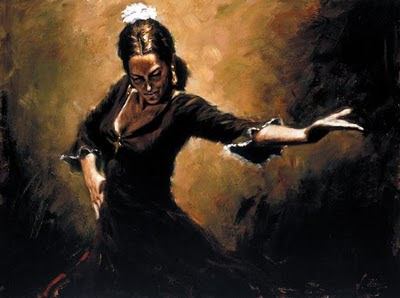That's one, and I would wager, the primary, reason given by Lillian McEwen for maintaining her silence about the sexist proclivities of Supreme Court Justice Clarence Thomas.
Because her relationship at the time of the 1991 confirmation hearings was deemed private and not professional, her testimony was not sought -- not even to sop up the aftermath of soupy defensive declamations such as:
If I used that kind of grotesque language with one person, it would seem to me that there would be traces of it throughout the employees who worked closely with me, or the other individuals who heard bits and pieces of it or various levels of it.
Well, Clarence, when you are right, you're right.
I don't know, but I definitely do care, how you and yours silenced the Marauding Evil Females so common to the early nineties, but a few of them seem to be willing to speak up these days. There is something about having your wife ask Anita Hill for an apology that makes these women fairly spit out the sour remnants of their persistent bitterness.
Can you hear them now?
Clearly, McEwen could and should have offered her testimony, even if it had to be done in an extrajudicial setting. [If you like, I will add a conciliatory paragraph detailing the dangers and consequences she'd have encountered for doing the right thing, but given the enormous implications of her choices, I don't respect her reasons, nor do I care for her excuses.]
McEwen's personal relationship with Thomas was cited by his supporters as irrefutable "proof" that the accusations of sexual impropriety made by Anita Hill were lies necessary to the "high-tech lynching" he suffered, because, you know -- oh, what was it? I get confused.
Oh yes, I remember now!
The Left needed Hill to secure the noose because nothing was more inflammatory than “the age-old blunt instrument of accusing a black man of sexual misconduct.” That's how the non-ideologue Thomas explained it in his 2007 autobiography, My Grandfather's Son, originally $26.95 but now $17.79 at Amazon, enticingly eligible for FREE Super Saver Shipping on orders over $25.
For the record, I disagree. It might be equally inflammatory to call Clarence Thomas an Uncle Tom. Just a few years after his ascension, Jack White published Uncle Tom Justice:
In his written opinions, he begins with premises that no self-respecting black would disagree with, then veers off into a neverland of color-blind philosophizing in which all race-based policies, from Jim Crow laws designed to oppress minorities to affirmative-action measures seeking to assist them, are conflated into one morally and legally pernicious whole. He delights in gratuitously tongue-lashing the majority of blacks who disagree with him on almost every civil rights issue. He heaps scorn on federal judges who have used the bench to enforce and expand civil rights, accusing them of a paternalistic belief in black inferiority. His harshest critics, like Wade Henderson, Washington director of the N.A.A.C.P., even speculate that "if Thomas had been on the court at the time, he would have opposed the decision in Brown v. Board of Education," the landmark 1954 decision that struck down segregated schools. [Read more here.]Speaking of books -- and I especially want to congratulate Justice Thomas on his autobiography, as those suckers are hard to write! -- McEwen just happens to have just published one of her own, in an amazing feat of timeliness. Were it not an idea more twisted than Lombard Street, I'd suggest that this whole I-Want-An-Apology Fiasco is something she and Virginia Thomas cooked up as a promotional effort.
Okay, I'll publish my "tell most, if not all" book... then you call and leave a weird-ass message for Anita, strange enough that Brandeis will call in the FBI and you make the front page of The Times, and bam! An instant media frenzy, and we are media darlings! Ka-ching!Okay, okay. Just remember: Whose blog is it, anyway, hmmm?
Anyway, it looks as if the perverted and intricate public/private dance that has heretofore benefitted this Supreme Court Justice may have a heck of a fluorish at the finish. I am thinking castanets and tauromaquia; I am thinking Flamenco. [Plus, I love the mouthfeel of saying Andalucia... almost as much as the very round and rich multicolore and salsa.]
 |
| Fabian Perez: Gitana |
In Thursday's Washington Post article by Michael Fletcher, McEwen asserts that:
...Hill's allegations that Thomas had pressed her for dates and made lurid sexual references rang familiar.Some of you may remember Angela Wright, who, contrary to McEwen, had been ready and willing to testify at the confirmation hearings, and was purportedly able to corroborate Hill's testimony about Thomas. Wright, ironically, worked for the EEOC, which handled allegations of sexual harassment. She was considered too much of a liability by leading Democrats on the Judicial Committee, most notably then Senator Biden, who feared her perception as a disgruntled former employee.
"He was always actively watching the women he worked with to see if they could be potential partners," McEwen said matter-of-factly. "It was a hobby of his..."
...[S]he said Hill's long-ago description of Thomas's behavior resonated with her.
"He was obsessed with porn," she said of Thomas, who is now 63. "He would talk about what he had seen in magazines and films, if there was something worth noting."
McEwen added that she had no problem with Thomas's interests, although she found pornography to be "boring."
According to McEwen, Thomas would also tell her about women he encountered at work. He was partial to women with large breasts, she said. In an instance at work, Thomas was so impressed that he asked one woman her bra size, McEwen recalled him telling her.
In a statement corroborated by a disinterested party, According to Ms. Wright, as she and Thomas entered a room dedicated to an EEOC seminar, he asked her breast size -- apparently a leitmotif in this jurist's interests.
For an examination of Wright's potential role and what exactly happened, politically, to derail her testimony in '91, see this roadmap over at Huffington Post: Angela Wright, "The Other Woman" of the Anita Hill-Clarence Thomas Hearings (Flashback). *
* When Virginia Thomas left a message on Anita Hill's voice mail on Columbus Day weekend October 9, 2010, she reopened what many remember as a "he said/she said" debate about sexual harassment. But it could have been "he said/they said." On Columbus Day weekend in October 1991 -- 19 years ago -- another witness was waiting to testify. She could help corroborate Hill's testimony in Clarence Thomas's Senate Judiciary Committee's Supreme Court nomination confirmation hearings. But Angela Wright was never called to testify.
What would she have said -- and why wasn't she called to testify?
In 1994, Florence Graves cleared up those mysteries in The Washington Post, revealing the intricate -- and bipartisan -- behind-the-scenes maneuvering by several Senate Judiciary Committee members to discourage the testimony of Angela Wright, a woman whose information could have helped corroborate Anita Hill's allegations against Clarence Thomas. The article uncovered a surprising unwritten agreement among top Republicans and Democrats not to call Wright, apparently because they feared either that her testimony would create even greater political chaos or that it would doom Thomas' nomination. It also uncovered evidence suggesting that Thomas lied to the Committee. Several senators -- including then-Republican Senator Arlen Specter (Pa.), then-Senator Joe Biden (D-Del.), and other key players -- told Graves they believed that if Wright had testified, Thomas would not have been confirmed.

